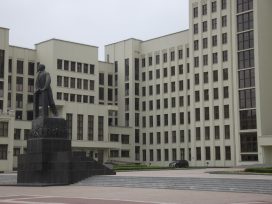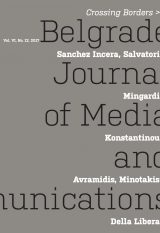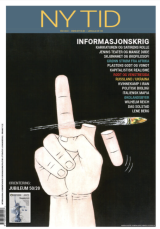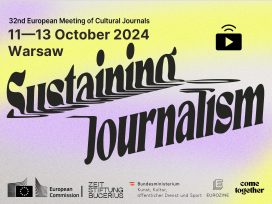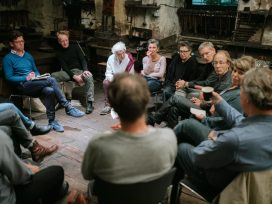With anti-feminist tech executives now at the heart of US government, an already under-regulated IT sector may soon be able to pass medical data to law enforcement agencies prosecuting women under anti-abortion laws.
Articles
Political failures after independence allowed Belarusian society to become captive to the pro-Russian state. As Lukashenka enters his seventh term, five years after crushing the peaceful revolution, what lessons can the opposition take?

The technological link between the rifle and the film camera, the medial links between the Gulf War and Star Wars, the colonial history of bombs – piecing together historical and contemporary fragments reveals an image of Kurdistan as a testing ground for military technology unleashed without responsibility for its consequences.

The conglomerate publishing industry sets conservative parameters on what it considers will sell. Repeating a winning ‘trending’ formula is high up on its list. But blobby, multi-coloured book covers lining supermarket shelves aren’t the only result of industry homogenization – independent presses are negotiating gaps in the market, spearheading literary excellence.
Recommended topics

The ceasefire between Hamas and Israel has brought a sigh of relief to the international community – not least because we love to avoid discussing, even thinking about this conflict. Why is that? In this Standard Time episode we talk about anti-muslim racism and how to understand what’s happened in Gaza.

Capitalism’s nervous breakdown
A conversation between Dessy Gavrilova and Albena Azmanova
Competitive labour markets, whether private or public, often set profit margins over employment rights. Job insecurity and new forms of exploitation are on the rise. As is the Far Right, cashing in on resultant worker anxieties. Is there a way out of this ‘precarity’, tormenting the overworked and underpaid?

Trump’s imperial ambitions are forcing the EU to rethink its global position. And European far-right parties, swollen on fears of diminishing world power, are paradoxically flogging the ethnic nation as a place of shelter. But finding unity in scapegoating migrants blatantly fails to recognize the need for a common purpose in times of worldwide uncertainty.

“Come Together” is founded on the principles of partnership and peer-to-peer learning among individuals within community media organizations situated in six different countries. Instead of generating entirely new knowledge, the initiative aims to unearth and leverage the existing wisdom residing within these organizations to foster innovative approaches.
Eurozine review
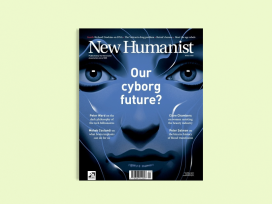
Dangerous dreams
New Humanist 139 (2024)
Problematic tech philosophies: How ‘effective altruism’ and ‘longtermism’ have permeated the highest echelons of academia and government; the ethical concerns surrounding brain-computer interfaces; and enduring obsessions with the blood transfusion.

Nationless identity
Glänta 2/2024
On the past, present and future of Kurdistan: rethinking power structures; statelessness in a world of states; and Kurdistan as a war laboratory.
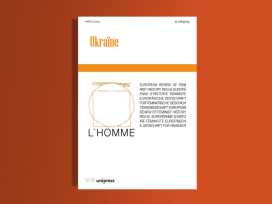
Hidden groundbreakers
L'Homme 1/2024
Localized political shifts have shaped Ukrainian women’s rights over the centuries: the Russian Empire once afforded property rights for aristocratic women in the south; socially active daughters of Greek-Catholic priests founded Galician societies under Habsburg rule; and forced migrants today forge new academic paths.
Focal points

The European Parliament elections on 9 June are a referendum on EU policy since 2019. Will voters give Europe the green light for further progress, or pull the brakes? A new Eurozine series measures the political atmosphere in the EU and its neighbourhoods at this crucial moment.

Food and water systems under pressure: as the end of abundance becomes an everyday experience in Europe, we are thinking more closely about how our food reaches the table.

Post-revolutionary Ukrainian society displays a unique mix of hope, enthusiasm, social creativity, collective trauma of war, radicalism and disillusionment. With the Maidan becoming history, the focal point ‘Ukraine in European Dialogue’ explores the new challenges facing the young democracy, its place in Europe, and the lessons it might offer for the future of the European project.

Some observers, recalling the disasters of the 1920s and 30s, are suggesting that an anti-democratic counterrevolution on a global scale has begun. But is the writing really on the wall? Or does declinism prevent us from recognizing moments of democratic renewal?
